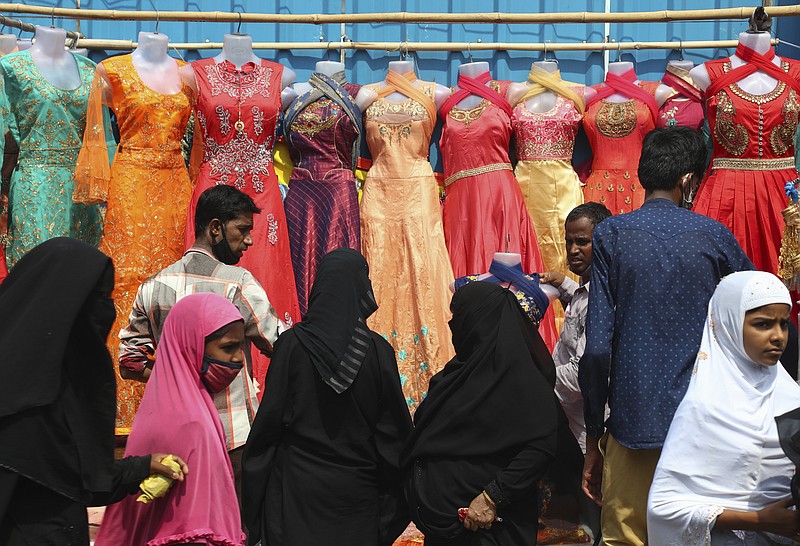BENGALURU, India -- A dip in the number of coronavirus cases in Mumbai is offering a glimmer of hope for India, still in the clutches of a devastating coronavirus surge.
In the past week, the number of new cases plunged by nearly 70% in India's financial capital, home to 22 million people. After a peak of 11,000 daily cases, the city is now seeing fewer than 2,000 a day. A well-enforced lockdown and vigilant authorities are being credited for Mumbai's success.
Even the capital of New Delhi is seeing faint signs of improvement as infections slacken after weeks of tragedy.
[Video not showing up above? Click here to watch » https://www.youtube.com/watch?v=77fsTx9jdOc]
With nearly 25 million confirmed cases and 274,000 deaths, India's caseload is the second highest after the U.S. But experts believe that the country's steeply rising curve may finally be flattening -- even if the plateau is a high one, with an average of 340,000 confirmed daily cases last week.
On Monday, reported infections continued to decline as cases dipped below 300,000 for the first time in weeks. It is still too early to say things are improving, with Mumbai and New Delhi representing only a sliver of the overall situation.
Given India's size and population of nearly 1.4 billion, what's more important to track is a cascade of peaks at different times instead of a single national one, experts said.
"It seems like we are getting desensitized by the numbers, having gotten used to such high ones," said Bhramar Mukherjee, a University of Michigan biostatistician tracking the virus in India. "But a relative change or drop in overall cases does not diminish the magnitude of the crisis by any means."
With active cases over 3.6 million, hospitals are still swamped by patients.
Experts also warn that another reason for an apparent peak or plateau in cases could be that the virus has outrun India's testing capabilities. As the virus jumps from cities to towns to villages, testing has struggled to keep pace, stirring fears that a rural surge is unfurling even as data lags far behind.
Combating the spread in the countryside, where health infrastructure is scarce and where most Indians live, will be the biggest challenge.
"The transmission will be slower and lower, but it can still exact a big toll," said K. Srinath Reddy, president of the Public Health Foundation of India.
Hit by a staggering shortage of beds, oxygen and other medical supplies, many states are now adding thousands of beds a week, converting stadiums into covid-19 hospitals and procuring as much equipment as possible. States are preparing to be hit by another wave of infections.
Aid from overseas, while still facing bureaucratic hurdles, is starting to trickle in. More than 11,000 oxygen concentrators, nearly 13,000 oxygen cylinders and 34 million vials of antivirals have been sent to different states.
Still, help is arriving too slowly in many districts as new infections surface in every single region, even the remote Andaman and Nicobar islands in the Indian Ocean.
Meanwhile, vaccinated Saudis will be allowed to leave the kingdom for the first time in more than a year on Monday as the country eases a ban on international travel aimed at containing the spread of the coronavirus and its new variants.
For the past 14 months, Saudi citizens have mostly been banned from traveling abroad out of concerns that international travel could fuel the outbreak of the virus within the country of more than 30 million people. The ban, in place since March 2020, has impacted Saudi students who were studying abroad, among others.
In recent months, however, the kingdom has vaccinated close to 11.5 million residents with at least one jab of the covid-19 vaccine, making them eligible to depart the country Monday under the new guidelines. Authorities will also allow people who have recently recovered from the virus and minors under 18 years of age with travel insurance to travel abroad.
Saudi travelers are required to show their health statuses to airport officials through the government's health app, Tawakkalna. Travelers returning from abroad will be required to quarantine at home and be tested for the virus.
Information for this article was contributed by Rafiq Maqbool, Amr Nabil and Aya Batrawy of The Associated Press.










